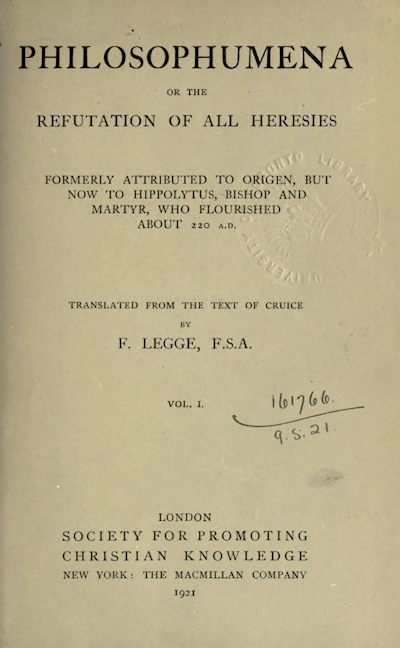
TEXT
The Christian must know as a fact of real history, illustrated by real philosophy, what Jesus of Nazareth thought both of himself and of his personal divine mission, and what was the extent of that holy work for which he lived and died, but which he left as a progressive act of the divine regeneration of mankind, to be carried out by the Spirit of God among his believers
Adapatation
The Daist must know as a fact of real history, illustrated by real philosophy, what Adi Da Samraj thought both of himself and of his personal divine mission, and what was the extent of that holy work for which he lived and died, but which he left as a progressive act of the divine regeneration of mankind, to be carried out by the Spirit of God among his followers.
TEXT
He knows as a believer, his religion is the true one; but he will not lose sight of the important circumstance, that the elements which act in true religion are not exempt from the general principles of evolution inherent in the nature of those elements.
Adapatation
As a devotee, his religion is the true one; but he will not lose sight of the important circumstance, that the elements which act in true religion are not exempt from the general principles of evolution inherent in the nature of those elements.
TEXT
The history of the Christian religion shows, that neither its rites, nor its records, nor its forms of leadership, are exempted from general laws, as to their origin, to their interpretation and application, and to their progress and decay. This is no longer a question of theory or of probability, but a matter of fact and of history. Nearly two thousand years are before us: we are fully able to go through the accounts: if any priest, or any body of priests or doctors, pretend to infallibility or the exclusive right of judging, we shall not lose our time in disputing their authority, but point to the sum total, and to all the great items which through these years cry out against such unholy pretensions, Any flaw in the account proves the pretender to infallibility to be mistaken, and sets him down, if he continues to claim that authority, as a tyrant or an impostor, or both. The divine nature of Christianity does not make itself good by the absence of those agencies which ordinarily contribute to the development of human institutions; indeed, if it did, Christ and Christianity would not be an object of history, but a fable: it proves itself by the renovating power of the Spirit in the living conscience of believers. It is the unity of the working of this Spirit which in the whole course of development forms the real, the only true, unity and uninterrupted continuity of the Church
Adapatation
The history of Adidam shows, that neither its practices, nor its records, nor its forms of leadership, are exempted from general laws, as to their origin, to their interpretation and application, and to their progress and decay. This is no longer a question of theory or of probability, but a matter of fact and of history. Nearly two decades are before us: we are fully able to go through the accounts: if any priest, or any body of priests or doctors, pretend to infallibility or the exclusive right of judging, we shall not lose our time in disputing their authority, but point to the sum total, and to all the great items which through these years cry out against such unholy pretensions, Any flaw in the account proves the pretender to infallibility to be mistaken, and sets him down, if he continues to claim that authority, as a tyrant or an impostor, or both. The divine nature of Adidam does not make itself good by the absence of those agencies which ordinarily contribute to the development of human institutions; indeed, if it did, Adi Da and Adidam would not be an object of history, but a fable: it proves itself by the renovating power of the Spirit in the living conscience of devotees. It is the unity of the working of this Spirit which in the whole course of development forms the Real, the Only True, unity and uninterrupted continuity of Adidam in the true sense of the Word.
Moral
Understand, know, and be able to communicate the differences between both religions by studying them in depth.